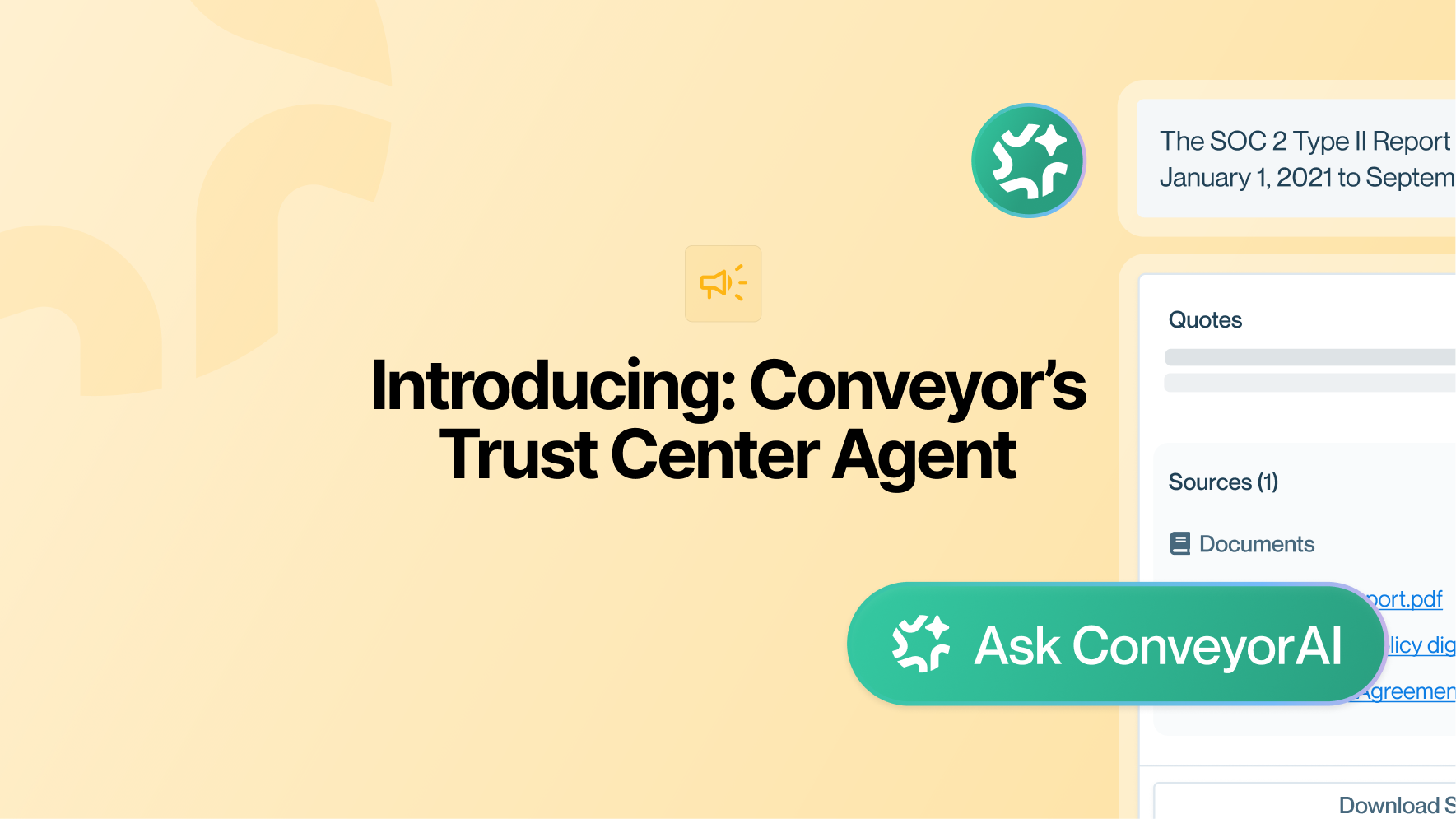We know there is a lot of marketing noise out there about the best RFP software. In this post, we’ll break down the key features to look for in the right proposal management software for your team and some products currently on the market so you can cut to the chase and find the best solution for you.
What is RFP software?
We had to put this in for SEO.
If you're reading this article, you're likely on the hunt for something that can help you prepare RFP responses and manage the response process without you having to do all the related manual work and repetitive tasks like crafting the best sales-ready answers, getting approval of answers from subject matter experts, managing the proposal process across teams, reporting on wins, and more.
Software in this space should auto-generate responses to questions for customer RFPs based on a content library, help you collaborate with your team, manage your knowledge base, track proposals and status of RFPs in play, and help automate the entire RFP process.
Legacy RFP Software vs. GenAI RFP Software
Here, we'll highlight some of the main differences between the legacy RFP platforms and some of the newer vendors on the market.
Legacy RFP Software Vendors
There are legacy players in the space like:
- Responsive (Formerly RFPIO)
- Loopio
- Qvidian
- Ombud
- QorusDocs
- RocketDocs
These software vendors share a set of key features. All of them offer content management systems for organizing proposal content, answer generation capabilities, features to facilitate the review process, and collaboration tools to coordinate answers for RFPs across teams. Most of these RFP platforms also provide integrations with your existing tech stack and other CRMs, as well as analytics capabilities.
This set of software typically uses keyword matching to find the keywords in the questions of your RFP, match them to a question and answer pair in your content library or knowledge base, and provide the nearest match. This has generally been how most software is configured, though many are upgrading their AI as new competition heats up the space.
New RFP Solution Vendors
Then, there are new RFP platform players that are built on new large language models (LLMs) like:
- Conveyor
- Tribble AI
- Docket AI
- Arphie
- Autogen AI
They share a set of core features as well. Where the legacy software set above used technology around keyword matching to generate answers for RFPs, these newer software vendors are using LLMs which drive a more advanced level of answer generation and can understand nuance and context before providing an answer.
As such, most of the features revolve around better answer generation, more advanced features, and AI that doesn't necessarily need to use a content management system to generate answers, but can use documents, external sources, and more as source material. Some of these newer vendors don't require you to maintain thousands of questions in a knowledge base in order to complete an RFP and have other predictive capabilities as well along with similar features to the legacy vendors such as easier collaboration flow, integrations, and analytics.
What should you look for in an RFP solution?
Choosing the right RFP software can be challenging with all of the solutions on the market. You should determine where the biggest roadblocks are in your response process and map your requirements to these.
In general though, the best RFP software should be able to:
- Consistently produce high AI answer accuracy
- Provide low content library maintenance by being able to read from any source
- Handle any format for importing
- Make it easy for your teams to collaborate
In this article, we'll look at the following RFP platform vendors:
- Conveyor
- Responsive
- Loopio
- Qvidian
- QorusDocs
[We know there are a lot of tools out there. How do you know which will actually work in your workflow? Get started with a free 1-week proof of concept and test with your own data and team to see which is the best fit for you.]
Conveyor for RFPs
When it comes to dealing with RFPs, having the right software can make all the difference. Best in class RFP software should be able to help you get what you need done in just a few clicks. That's where Conveyor comes in. Our AI is designed for teams who need to streamline their RFP automation process with precision and efficiency. Whether you're dealing with hundreds of documents and/or various file formats, ConveyorAI offers high AI answer accuracy, simplifies your workflow by allowing instant import in any format and reduces your knowledge base maintenance to only a few hundred question and answer pairs because it can read from any source.

Unmatched AI answer accuracy
Conveyor's AI-powered RFP response software is one of the most accurate on the market. The company benchmarks performance by grading the AI output on a weekly basis. With an answer accuracy rate of 95%+ Conveyor gets the answers right the first time meaning you can spend more time on refining the answers and less time on finding the right match in your knowledge base. Plus with an answer coverage of 90%+, you can be sure that Conveyor is not only getting the questions right, but returning to you with a near complete RFP. But how is Conveyor so accurate? Both from a proprietary AI processing pipeline, the ability to read from the most updated sources, and taking recency of past answers into account. We'll get into that in the next feature below.

AI uses documents and external sources which means low Q&A pair maintenance:
Unlike other RFP software that require extensive knowledge base maintenance, Conveyor's AI-powered RFP response software reads from every source. We’re talking external marketing sites, sales slides, company wikis and so much more. This is how Conveyor is able have an answer accuracy rate of 95%+. So what does this mean for you? With a wide breadth of source material most of which is already being maintained by other teams, you only need to maintain ~200-400 Q&A pairs—not thousands. This drastically reduces the time and effort needed to keep your knowledge base up to date. Plus, with more sources for the AI to read from, you get higher answer accuracy meaning less rewrites and less time spent on review.
Conveyor also automatically incorporates past answers into AI generated answers and it takes into account recency of the answer so you don't have to update your knowledge base each time you complete an RFP.

Bonus: Conveyor’s AI will cite the sources in your answers so you can feel confident in the AI’s answer.
Uploads any file format for instant processing:
No one wants to manipulate a file before uploading it into their software——it’s tedious. Conveyor can intake any file format for instant processing with drag and drop uploads, saving you the hassle and time. No more reformatting or converting files—just upload and go. Conveyor's AI can easily process any excel file, word document or PDF. There is also a browser extension for portal-based formats although that's typically more commonly seen for security questionnaires than for RFPs.
We know there are a lot of tools out there. How do you know which will actually work in your workflow? Get started with a free 1-week proof of concept and test with your own data and team to see which is the best fit for you.

Responsive

Responsive offers RFP software, with some AI-powered automation and analytics to improve the RFP response management process. As for AI, Responsive uses it to power their content library for search functions and answer automation. Their RFP software also offers collaboration within the workflow to make it easier to work across teams in the RFP process.
Loopio

Loopio is a versatile RFP software designed to manage RFPs, RFIs, security questionnaires, and more. By automating the response management process with workflow management and some collaboration features, Loopio enhances efficiency and accuracy for RFP answering. It's proposal software AI capabilities that enable it to automatically locate and insert relevant content from your library, streamlining the creation of first drafts.
Qvidian

Qvidian's RFP software provides customizable templates to help streamline the proposal process. With automated workflows, Qvidian's proposal software improves efficiency and reduces the manual effort involved in responding to RFPs. Plus, virtual collaboration is facilitated through in-product message threads and integrations with leading industry software, simplifying teamwork for distributed teams.
QorusDocs

QorusDocs is a proposal automation software and RFP software. It helps simplify the process of creating pitches, proposals, and RFP responses. QorusDocs RFP software excels in quick pitch creation, allowing users to rapidly generate and customize high-quality pitches.
Make the most of your RFP software
Choosing the right RFP software means understanding what you need most in your process. What will make your process easier is finding a solution that offers instant and accurate AI answers, ease of import/export for your workflow and of course a tool that eases the burden of knowledge base maintenance. After all, these three can be the biggest time suck in the process.
Ready to streamline your RFP process and boost your chances of winning more deals? Start exploring these top RFP software options today with your bid teams and sales teams and so RFPs become less of a burden.
Use Conveyor for RFPs
We've found Conveyor's answer accuracy is so high for security questionnaires that we've optimized the software for RFPs as well. So yes, while Conveyor was built for security questionnaires, it can now handle both security questionnaires and RFPs because of the power of generative AI accuracy across multiple topic areas with limited knowledge base maintenance. Schedule a call with us to try it for free with your own data.

















.png)





















.png)











